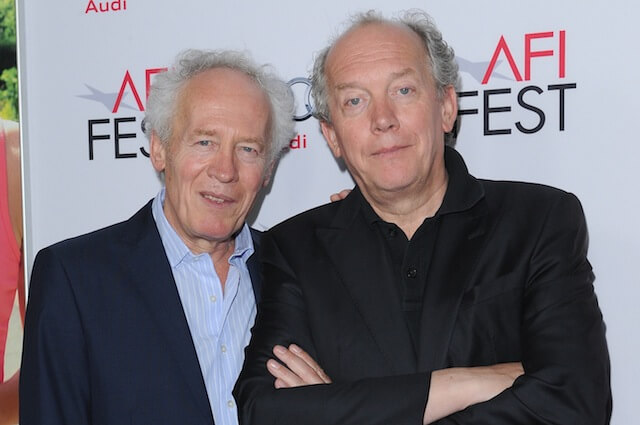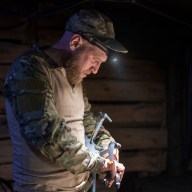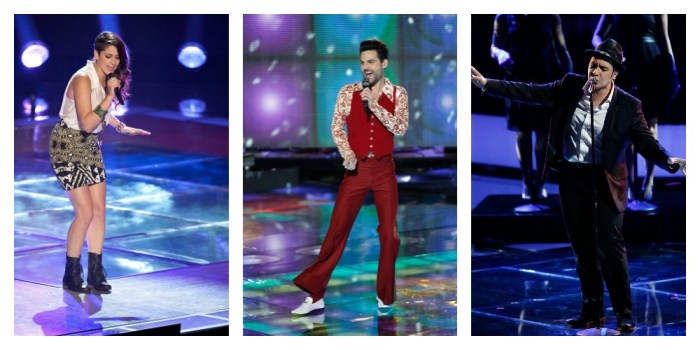Interview: Jean-Pierre and Luc Dardenne talk Marion Cotillard

Getty Images
For directors whose work is unfailingly grim and heavy, each studies of the ailments that plague Europe’s working class, Belgium’s Jean-Pierre and Luc Dardenne are very chipper. Luc smiles the most, giggling as the translator gets to a joke he made during a response. They have a levity that helps them make clear-eyed, ethical-minded dramas, the latest bringing a major star, Marion Cotillard, into their world of realism. She plays a factory working who discovers budget cuts have forced the powers-that-be to cut one or the other: her position or everyone’s annual bonuses. She has to visit each coworker to have them vote for her, even though that might not be the right decision.
You two met Cotillard outside an elevator. Did you already have a project ready for her to jump into?
Luc Dardenne: We had a script that was about a young doctor. Within 10 seconds of meeting her we talked to her about that. We said we’d been dreaming of working with her and she said she’d been dreaming of working with her, and then we went back to work on the script. But it really wasn’t gelling, so another one we’d started long before re-emerged. From that point on we could only see Marion in the role.
She’s an A-list actress. What was it about her that convinced you she’d be right for your realistic world?
Luc: She goes to places where you don’t really know where she’s going. That was a tremendously important quality for Sandra, because she’s a character who does that. She’s there and then she’s not there. That intangible, ungraspable quality was crucial for us.
How do you get someone of her stature to fit into your films?
Jean-Pierre Dardenne: None of the actors are treated as less important or more important than the others. We needed her to melt into our process, which she did excellently. We needed everyone to work on equal turf, and that’s what happens during the rehearsal process. We give a lot of space for the actors. At that point we’re only working with the actors, and we try to rid them of all artifices, so they can become very comfortable and very trusting. The thing with Marion is there are many layers to her acting. You never have a moment where you think what she’s doing isn’t right. She nails it, but she also keeps coming up with things you didn’t necessarily think of.
Cotillard’s character, Sandra, is likely the most fragile protagonist in your movies. She forces herself to humiliate herself by begging coworkers to take her side, but she does it reluctantly and is prone to breakdowns, whereas most of your protagonists are driven, even amoral.
Jean-Pierre: Ultimately it’s in praise of fragility. It’s putting fragility on a pedestal. To bring to the fore a character like that into today’s work, which is usually the reverse of that, felt timely and important.
Luc: That’s not to say she’s a victim. We don’t want to say, “Oh, the poor girl.” She fights and she gets stronger, and at the end she triumphs.
Each encounter she has is very different from the others. Some go well, some develop and go one way or the other, some are hostile.
Jean-Pierre: We didn’t want to send Sandra out to meet up with 14 sonsofbitches, who would make her shake her finger and say, “You bastards could at least show some solidarity.” At the beginning of the film Sandra says they’re right. She goes through that journey and we can she’s able to put herself in somebody else’s shoes. And each of the coworkers she sees, they have a very short time to exist onscreen. It was important that they had equal weight to Sandra.
There’s no right answer to anything, though.
Luc: The question is not who’s the bad guy, or say the boss is the bad guy. There are real issues here, something that’s going on in Europe, and everywhere, really. You have competition from Asia that undercuts the work force in Europe. Those are real issues that bosses have to deal with. One of the differences today versus the past is the heads of enterprise are much more cynical than they used to be in terms of decision-making and how they look at things. For instance, Sandra’s boss could have given her some pie-in-the-sky theory about restructuring the company. But he takes this other tack. He knows the workers have problems, they have financial needs, they have debts. So he puts the decision on them, thereby exonerating himself and putting the responsibility on them. That’s happening in today’s world, and it’s getting worse. He knows everyone’s struggling so he uses that to manipulate them.
On a more superficial level, this and “The Kid with a Bike” are actually brighter than your past films, which tend to take place during overcast, brutal times of the year. These are in spring and summer and have signs of happy life going on in the margins.
Jean-Pierre: We just felt it would be more interesting if all this would happen with sunlight rather than in the rain. We made a bet to shoot in summer, but in Belgium, just because you’re shooting in the summer doesn’t mean you’re going to get sun. But the skies were with us. We felt the sun beating down Sandra she was going to see happy people, she’s sweating, and all this in a way underscored her fragility.
Luc: And if it’s warm and there are kids in the street playing and running around, you have this further sense of her isolation, her solitude. And we are prudent and Belgian, so we had taken precautions if it rains. If you notice, in her bag she always has a little jacket or sweater.
Follow Matt Prigge on Twitter @mattprigge


















